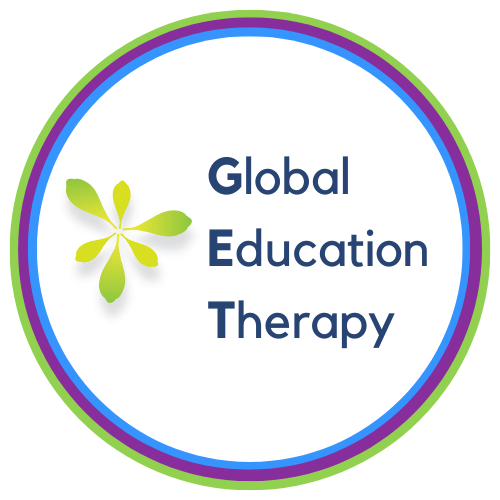GET Tips for Struggling Readers: Phonological Awareness
Global Education Therapy, formally known as Worldwide Speech, is the pioneer in education, speech, and occupational therapy. We have over 12 years of experience providing services online.
Do you have concerns about your child’s reading struggles? Learn how to teach fundamental reading skills below!
Definitions
Phonological awareness: all-over awareness of sounds in spoken words and the ability to ID and change around those sounds.
Phonemic awareness: the ability to focus on and change individual sounds (phonemes) in spoken words.
Phonics: refers to knowledge of letter sounds and how to apply that when decoding unfamiliar printed words.
The development of strong phonological/phonemic awareness skills benefits all students learning to read, but is even more important for struggling readers presenting with dyslexia, a language disorder, and/or developmental learning disability. Children who struggle with phonological and phonemic awareness tasks are at greater risk for reading difficulty in the future. Early intervention is key because, early on, kids are still in the “learning to read” phase. In the future, however, kids must switch from “learning to read,” to “reading to learn.” The switch to reading to learn is where reading struggles begin.
Not all hope is lost! With speech therapy and/or reading intervention, these children learn how to catch up.
What Are Common Phonological Awareness Tasks?
Breaking down words, sounding out words, rhyming, alliteration, and identifying syllables in a word. The latest phonological awareness skill to develop is phonemic awareness. Phonemic awareness is the ability to think about and work with individual sounds in spoken words.
5 Ways to Help Your Child with Phonological Awareness
READ RHYMING BOOKS: Stop at the end of a line and ask your child to fill in the rhyme (e.g., brown bear, brown bear, what do you see? I see a red bird looking at ____ (pause for them to fill in the blank).
PLAY THE ALPHABET GAME: To play this, you will look around while driving to find objects that contain each sound of the alphabet. For example, starting with A, find a sign that has an A in it (e.g., Applebees, adopt a highway sign, license plate, etc.) Continue to do this all the way through z! You can also do this activity while walking around a grocery store or going on a stroll through the park.
PRACTICE COMBINING WORDS AND SYLLABLES: Ask your child to hold their hands above their heads. Say one half of a word (e.g., cow) and ask them to being their left hand down in front of their chest. Then ask them to say the second half of the word and bring their other hand down (e.g., boy). Lastly, have your child join their hands and say the whole word (e.g., cowboy) [1]
PLAY GUESS MY WORD: Tell your child the sounds in a word e.g., “c-a-t” then ask them to guess the word! [1]
PHONEME REVERSAL: Phoneme reversal is a task that specifically requires students to segment and identify the sounds of a word, then reverse them! This is a great way to practice phonemic awareness.
When to seek professional help…
While the tips above serve as supplemental education at home, some kids need professional help. Struggles with basic phonological awareness skills like sounding out words, rhyming words, and decoding new words, is the biggest predictor of reading struggles. Early intervention is more effective than waiting to see if they catch up. Many parents are told their children will catch up, but when they don’t they continue to fall further and further behind.
GET provides both speech therapy and reading intervention services. Our mission is to increase access to quality educational services nationwide!
In conclusion…
It’s our job as parents, speech therapists, and educators to equip students with solid phonological and phonemic awareness skills to accelerate learning the connection between sounds and letters!
Still, have questions? You can always reach out to Global Education Therapy! Go to Global Education Therapy for our:
FREE parent handouts
FREE parent resource videos
FREE online parent support group
FREE online webinars
FREE 20 min consultation with Global Education Therapy to see if we can GET the help your child needs!
References
https://brainspring.com/ortongillinghamweekly/5-ways-practice-phonemic-awareness-home/




